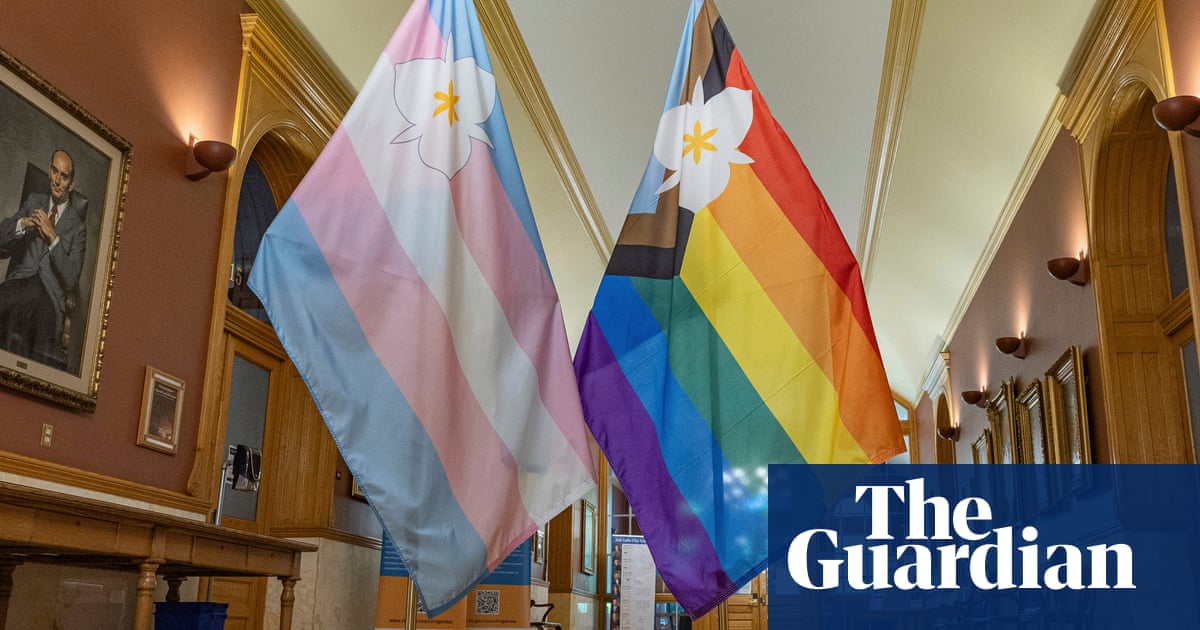Earlier this year,UtahandIdaho’sRepublican-controlled legislatures passed bans on flying the rainbow pride flags and other “unofficial flags” on government property.
Leaders in both states’ capital cities, Salt Lake City and Boise, recently devised an inventive workaround – changing theirofficial flags.
Salt Lake City’s mayor, Erin Mendenhall, proposed the adoption of three new city flags, which were unanimously approved by city council. All three have the city’s traditional sego lily design, respectively imposed over a pride flag, a trans flag, and a Juneteenth commemoration flag.
“Our city flags are powerful symbols representing Salt Lake City’s values,” said Mendenhall ina press release. “I want all Salt Lakers to look up at these flags and be reminded that we value diversity, equity and inclusion – leaving no doubt that we are united as a city and people, moving forward together.”
The new flags were a direct reaction to Utah’sHouse Bill 77, which narrowed the list of allowable flags to the state flag, the US flag, Olympic and Paralympic flags, official college flags or tribal flags, a city or county flag, military flags. State and local governments could be fined $500 a day for flying other unofficial flags.
Idaho’sHouse Bill 96restricted flagsto a list including the US flag, the POW/MIA flag, the official flags of Idaho colleges, universities and public schools, the official flags of military branches, and the Idaho state flag. The pride flag has flown over Boise’s city hall for years. Boise mayor Lauren McLean issued a proclamation in response, retroactively making the pride flag an official city flag.
Rolling back LGBTQ+ rights has been a fixation for the Trump administration, and conservative legislatures across the country. The US supreme court recentlyupheld Trump’s ban on trans military members. The president has pennedexecutive orderstargeting trans athletes, and imposing strict gender definitions.
Wyoming, one of America’s reddest states, hadmore trans-focused bills than trans athletesthis year. Iowa pushed to remove gender identity from the state’s civil rights code. More than a dozen other states are considering similar flag measures to Utah and Idaho’s.
Boise’s city council voted 5-1 in favor of the proclamation, with council member Meredith Stead as an affirmative vote.
“Removing the flag now after years of flying it proudly would not be a neutral act,” said Stead. “It would signal a retreat from values we’ve long upheld and send a disheartening message to those who have found affirmation and belonging through its presence at city hall.”
